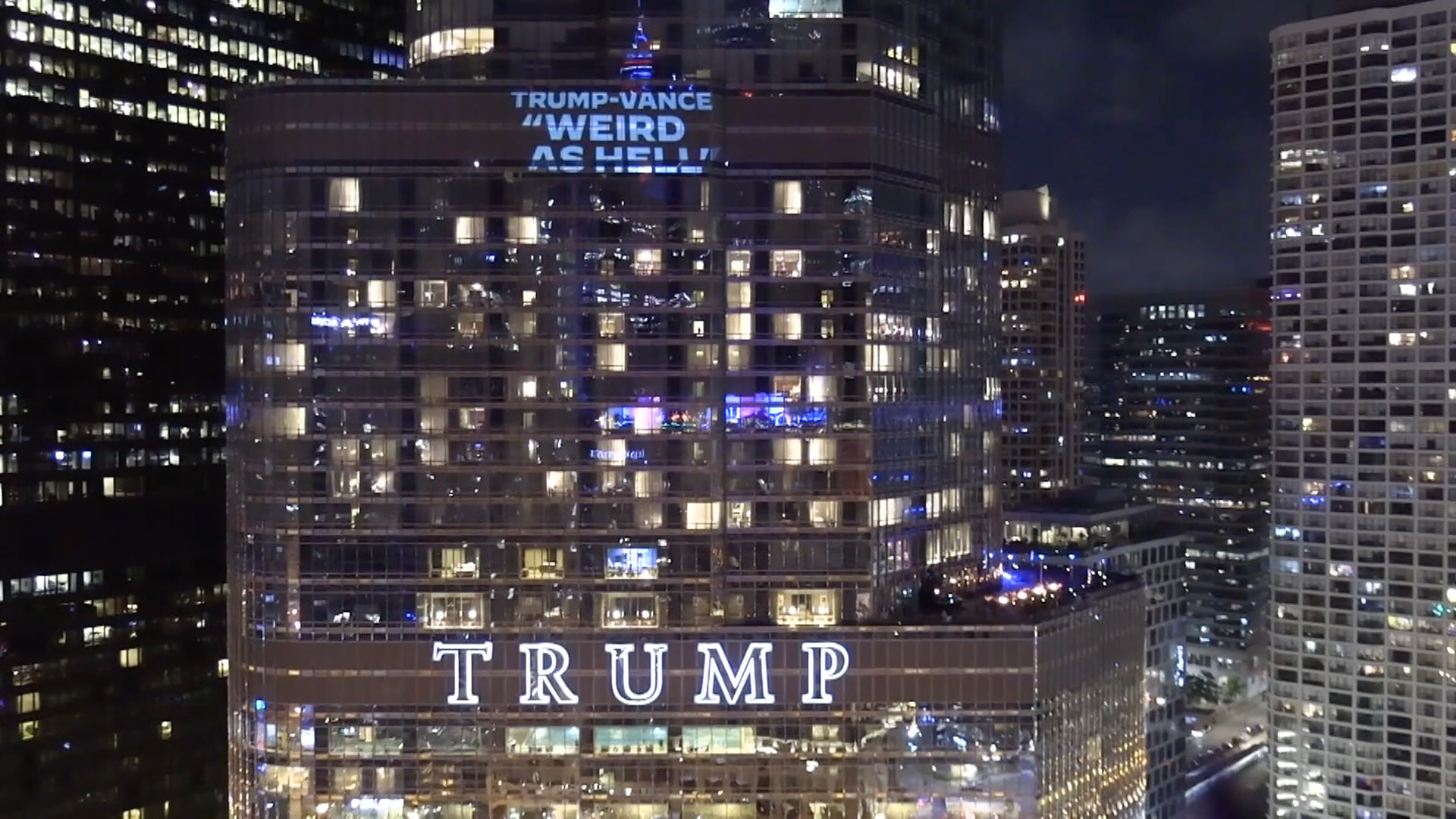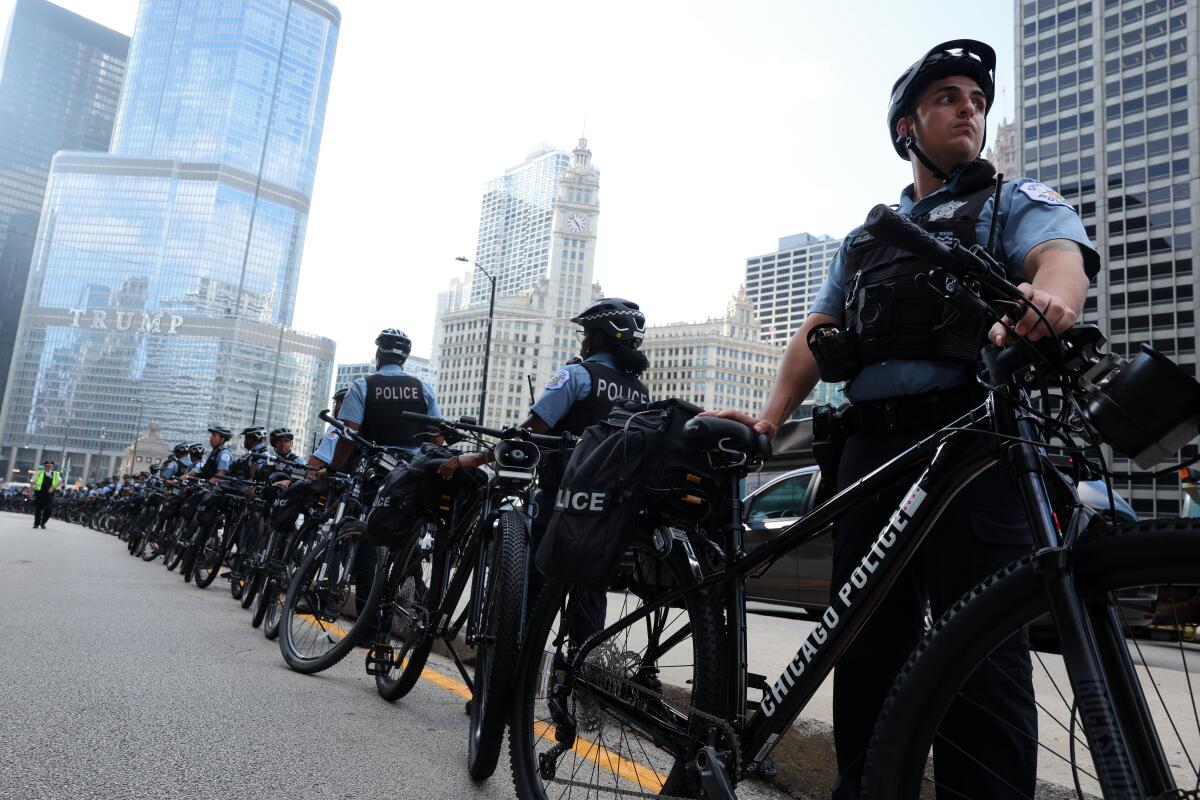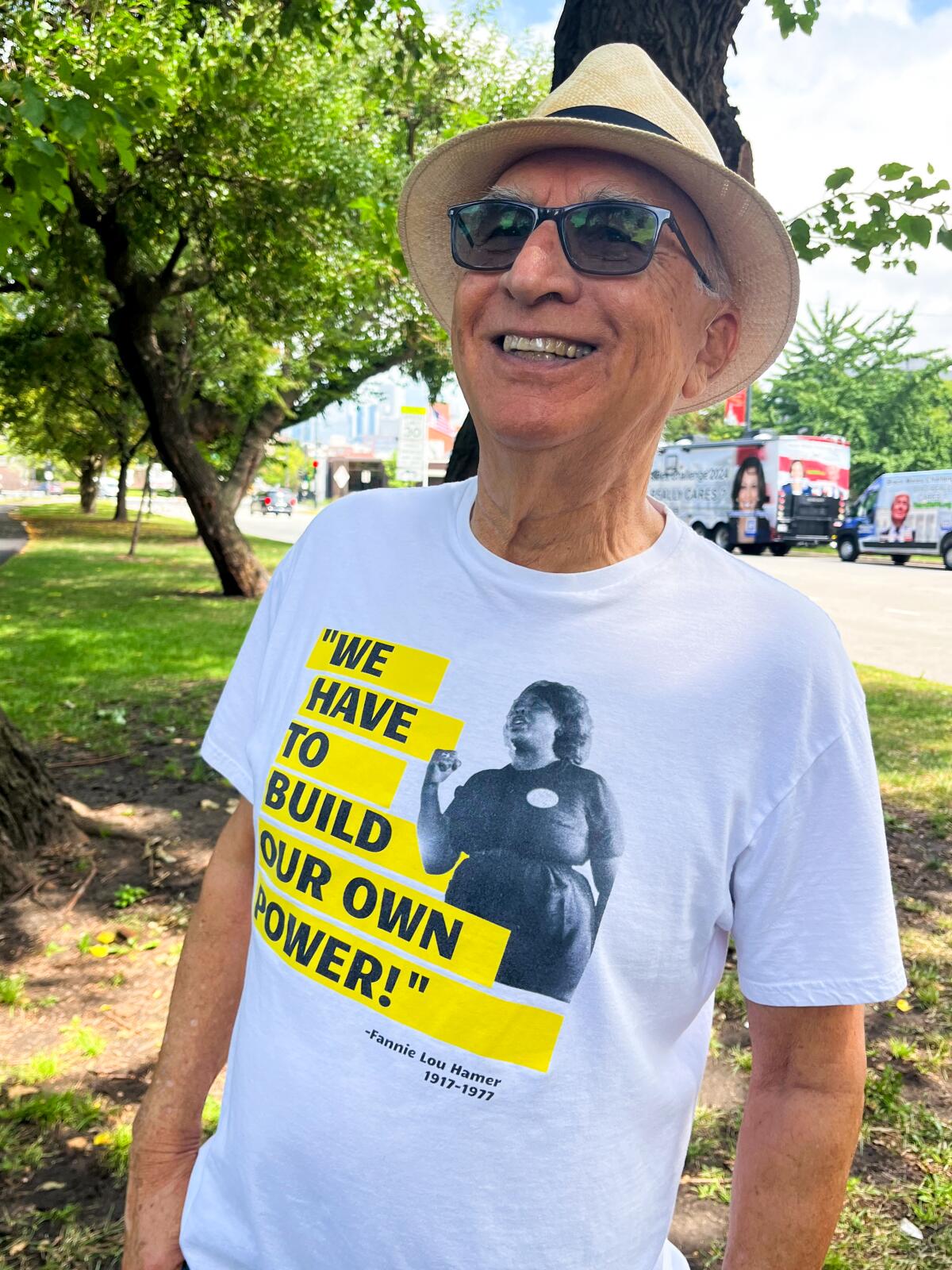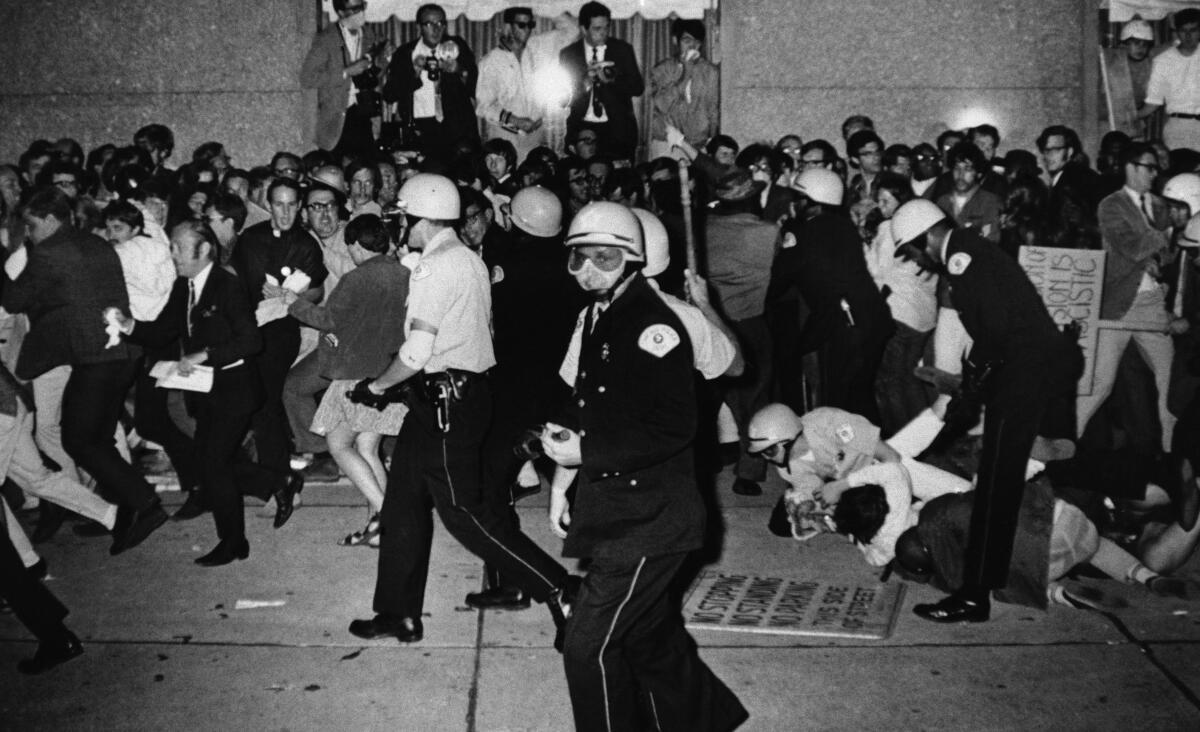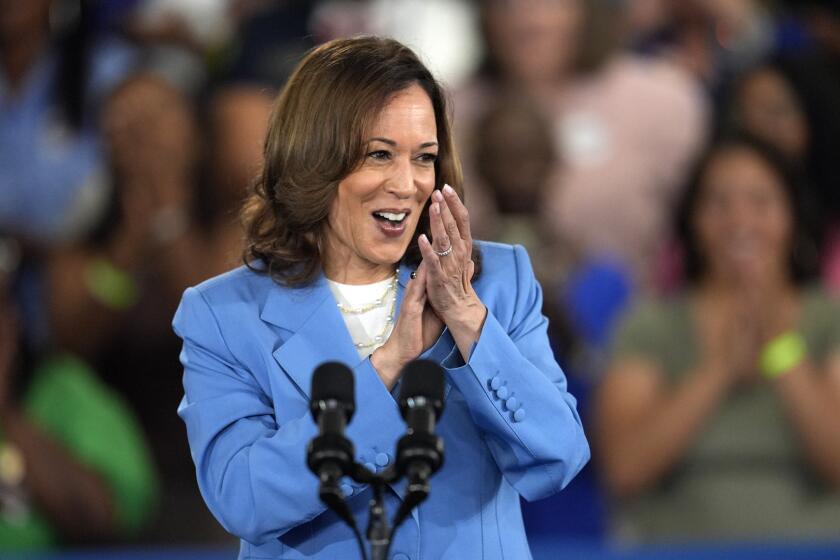“It’s the Democratic Party’s War”: Gaza Protests Planned Throughout Week as DNC Begins in Chicago
DEMOCRACY NOW!
U.S. Palestinian Community Network
As the 2024 Democratic National Convention opens Monday in Chicago, we look at the protests planned throughout the week to pressure Vice President Kamala Harris and the Democratic Party on key policies, including the ongoing U.S.-backed Israeli war on Gaza. Meanwhile, at least 36 delegates are also inside the convention as official delegates representing the “uncommitted” movement and are advocating an antiwar agenda to push for an end to U.S. arms sales to Israel. Although protesters this week come from a range of communities advocating on various issues, from economic injustice to reproductive rights, “Palestine is at the center,” says Hatem Abudayyeh, spokesperson for the Coalition to March on the Democratic National Convention and national chair of the U.S. Palestinian Community Network. “All of those communities are standing up very publicly and very proudly, saying, 'Free Palestine. End U.S. aid to Israel.'”
Transcript
This is a rush transcript. Copy may not be in its final form.
JUAN GONZÁLEZ: The Democratic National Convention kicks off today here in Chicago. The four-day convention will culminate on Thursday with Vice President Kamala Harris accepting the Democratic nomination for president. We’ll be bringing you coverage all week from the suites to the streets to the convention floor.
While Harris has energized the Democratic Party following President Biden’s decision to pull out of the race last month, the issues around the election have not changed, from economic injustice to reproductive rights to U.S. support for Israel’s war on Gaza. And thousands of protesters are converging on Chicago to make their voices heard.
In addition to the protests on the streets, inside the convention at least 30 pro-Palestinian delegates are representing the “uncommitted” movement and are advocating an antiwar agenda to push for an end to U.S. arms sales to Israel.
AMY GOODMAN: Over the course of the week, there are at least six major protests planned. The demonstrations kicked off on Sunday, on the eve of the convention, with the March for Bodies Outside Unjust Laws, which was organized by a coalition of different activist groups to demand action on reproductive rights, LGBTQ+ rights and for an end to the war on Gaza. The largest group, the Coalition to March on [the DNC], has planned demonstrations on the first and last days of the convention, with a major protest planned for today. Activists sued Chicago earlier this year, saying restrictions over where they can demonstrate violate their constitutional rights.
For more, we’re joined here in Chicago by Hatem Abudayyeh. He is the spokesperson for the Coalition to March on the Democratic National Convention and national chair of the U.S. Palestinian Community Network. He was born here in Chicago, is a longtime organizer in the Palestinian community.
Welcome to Democracy Now! It’s great to have you with us.
HATEM ABUDAYYEH: Thank you.
AMY GOODMAN: If you can start off by talking about what are the plans today?
HATEM ABUDAYYEH: So, the plans today are relatively simple. We’re going to start with a — launch with a press conference at 10 a.m. And then, at 12:00 noon on the dot, hopefully, we will start our program from a stage at Union Park, historical Union Park, where in 2006 — if you remember, the Sensenbrenner bill, the anti-immigrant bill, and an explosion of immigrant rights sentiment in this country — 500,000 people were in Chicago on March 10th of 2006 in that very park. So we’re really proud and honored to be there for this protest today.
JUAN GONZÁLEZ: And could you talk about the difficulty you’ve had in terms of arranging permits and the negotiations that went back and forth with police and the city?
HATEM ABUDAYYEH: Yeah, we had a really, really hard time with the law department at the city of Chicago, you know, very conservative, very reactionary. They did not negotiate in good faith with us. They made some promises that they reneged on. And originally, when they denied three of the organizations within the Coalition to March on the DNC, when they denied their permits, they tried to bury us four miles away on Columbus Drive. We rejected that, of course, immediately, and we sued in federal court, saying that if we were not within sight and sound of the United Center, the convention center, that they would be violating our First Amendment rights. So, then, my organization, USPCN, filed the fourth permit application. They rejected that, as well, but they recognized that they better put us within sight and sound, and they did.
JUAN GONZÁLEZ: And there was intercession by the mayor himself on some of this. Could you talk about that?
HATEM ABUDAYYEH: So, listen, I think the mayor, from day one, has said that he believes in the right of people to protest. He believes in a First Amendment right of everyone to protest. He talked about how he came to City Hall because of the protest movement, because of the Black liberation movement that he was a part of. And he also many times talked about the relationship between the Black liberation movement and Palestine liberation. So, he broke the tie in the City Council to pass a ceasefire resolution, the biggest city in the entire country that has done that. So, we see that, you know, Brandon Johnson has been an ally to oppressed communities generally, definitely an ally to the Palestinian community in Chicago and beyond, and we’re proud to have that relationship.
AMY GOODMAN: It’s very interesting what he said in a recent interview. This is the mayor of Chicago saying, “What’s happening right now is not only egregious, it is genocidal. We have to acknowledge and name it for what it is and have the moral courage to exercise our authority.” And if you can talk about not only that, but the fact today — and do you think the pressure you have all brought for these protests to be seen and heard has led to another first ever? You have the DNC hosting a panel on Palestinian human rights today at 3:00, which will be probably in the midst of your protest. The leaders and among those who will be speaking will be the heads of the “uncommitted” movement and Dr. Tanya Haj-Hassan, which they’re still pushing for her to actually address the convention from the stage.
HATEM ABUDAYYEH: And that’s a public panel that’s happening in the convention center. I hadn’t even heard that. I have to shout out to my colleague. When we were in our press conference yesterday, I got the quote in Mother Jones, and I presented it to the media gaggle there, as well. It was a powerful quote from the mayor, again, an example of how, you know, he’s really from the movement. And I think it’s very, very powerful also that there’s a panel in there.
I believe that, you know, the action outside is what the world will be watching. People are talking about the excitement of Kamala Harris going to the top of the ticket, but I think the excitement today and this week is going to be outside. We’ve got almost 300 organizations that have joined the Coalition to March on the DNC. Palestine is at the center. After October, the coalition made a shift and recognized that we had to call for a stop to U.S. aid to Israel and a stop to the genocide. But at the same time, of course, we’re still addressing all the other issues that we initiated this coalition to do: reproductive rights, women’s rights, workers’ rights, LGBTQ rights, the Black liberation movement, immigrant rights. All of those issues are going to be addressed. They’re going to be addressed from the stage. They’re going to be addressed in the posters and in the banners and in the puppets. It’s going to be an incredible sight, diverse, children and seniors, people of all different physical abilities, people of all different immigration statuses. And the powerful element of it is the fact that all of those forces and all of those communities are standing up very publicly and very proudly, saying, “Free Palestine. End U.S. aid to Israel.” For that to happen and for the entire world to be watching it is going to be a really, really powerful moment.
JUAN GONZÁLEZ: And could you talk, for those people around the country who are not familiar with the size and the influence of the Palestinian community here in Chicago?
HATEM ABUDAYYEH: Yeah. We believe that there’s approximately 80,000 Palestinians that live in greater Chicago. We think there’s about 250,000 Arabs in the entire state. And so, yeah, I believe we’re very influential. I believe we did an incredible job of helping to win the ceasefire resolution with our allies, mostly Black and Latino city councilmembers, and of course the mayor breaking the tie. And so, it is the largest community in the United States, and I think that is obviously significant.
The other thing is, on Wednesday at 3:30, the Chicago Coalition for Justice in Palestine, of which USPCN is also a member and a leader, will be organizing a protest. That coalition locally has organized over 50 protests since October. And clearly, clearly, Chicago is the hub of the Palestinian community in the United States.
AMY GOODMAN: I mean, isn’t the concentration of Palestinian Americans in Chicago is the largest concentration of Palestinian Americans in the country? It’s called Little Palestine.
HATEM ABUDAYYEH: It is. It is, yeah. And it’s the largest community — we believe it’s the largest community in the entire world, outside of the Arab world.
JUAN GONZÁLEZ: I wanted to ask you — you’ve been quoted as saying that Palestine is this generation’s Vietnam War. Could you talk about that, the similarities and the limits of that comparison?
HATEM ABUDAYYEH: Yeah. Listen, I think that, obviously, there are no U.S. boots on the ground, except for the advisers and the CIA and the others that are working directly with the Israelis to repress the Palestinians, but it is a U.S. war. And I think the entire world recognizes that. You know, Biden could have turned off that tap of funding and weapons from day one, if he wanted to. If he wanted to stop this genocide, he could have stopped it. He could stop it today. So it is a U.S. war. It’s recognized across the world as a U.S. war. And so — and the way that the rest of the world has responded to it reminds me a lot of the way the world responded to the Vietnam War, saying we have to stop these attacks on the people of Vietnam.
The other comparison is that the Vietnamese lost 2 million beautiful souls in that battle to defeat U.S. imperialism and to rid themselves of colonialism. In Algeria, the Algerians lost a million to get their independence and to boot the French colonialists out of there. And so, we recognize that there have been 40,000 Palestinians who have been killed, maybe 10,000 still under the rubble, 100,000 injured, 2 million displaced. But we look at the history, and we think about Vietnam and Algeria, and we say, “We are on the path to liberation.” And if it takes 40,000 martyrs — it’s hard to say this. It’s hard to watch every day, 24/7, on our hands, a genocide in real time. But we know that this will lead to the liberation of Palestine, and the liberation of Palestine will lead to the liberation of all the Arab masses in the Arab world.
So, we are supporting our people in Palestine. We recognize that they are incredibly strong and steadfast in resisting the Israeli occupation and colonization and this brutal genocide, and the rest of the world is with them. They know that. We just have to battle the Democratic Party and Kamala Harris and Joe Biden, because those are the only people who are not with the Palestinians in this world.
JUAN GONZÁLEZ: You were also in Milwaukee for the Republican convention. Could you talk about what happened there?
HATEM ABUDAYYEH: Yeah, I was there. And I get questioned all the time, “Well, how come you’re not protesting the Republicans?” Well, we did protest the Republicans. “Well, how come this one is going to be a lot bigger, and why are you putting more resources here?” And I said, “That’s not necessarily the truth. If the Republicans were in power and the Republicans had the presidency, then the event of the season would have been Milwaukee and the RNC. But the reality is it’s Joe Biden’s war, it’s the Democratic Party’s war. And Biden and Harris, and Blinken especially, and, you know, Jeffries and Schumer and Pelosi and all of them, the top leaders of the Democratic Party, are complicit. And that’s why we’re protesting the DNC.” And that’s why there’s going to be thousands, if not tens of thousands, in the streets this week.
AMY GOODMAN: Well, we want to thank you for being with us, Hatem Abudayyeh. You mentioned Vietnam. Well, we’re going to go back to 1968 here in the streets of Chicago. Hatem is spokesperson for the Coalition to March on the Democratic National Convention and national chair of the U.S. Palestinian Community Network, born in Chicago, longtime organizer in the Palestinian community.
When we come back, we look back at the 1968 DNC, when police violently attacked protesters who were calling for an end to the war in Vietnam. We’ll be joined by longtime Chicago activist Bill Ayers, who was arrested then as a member of Students for a Democratic Society, and our own Juan González, in the streets in 1968 here in Chicago, where he now lives. Stay with us.
